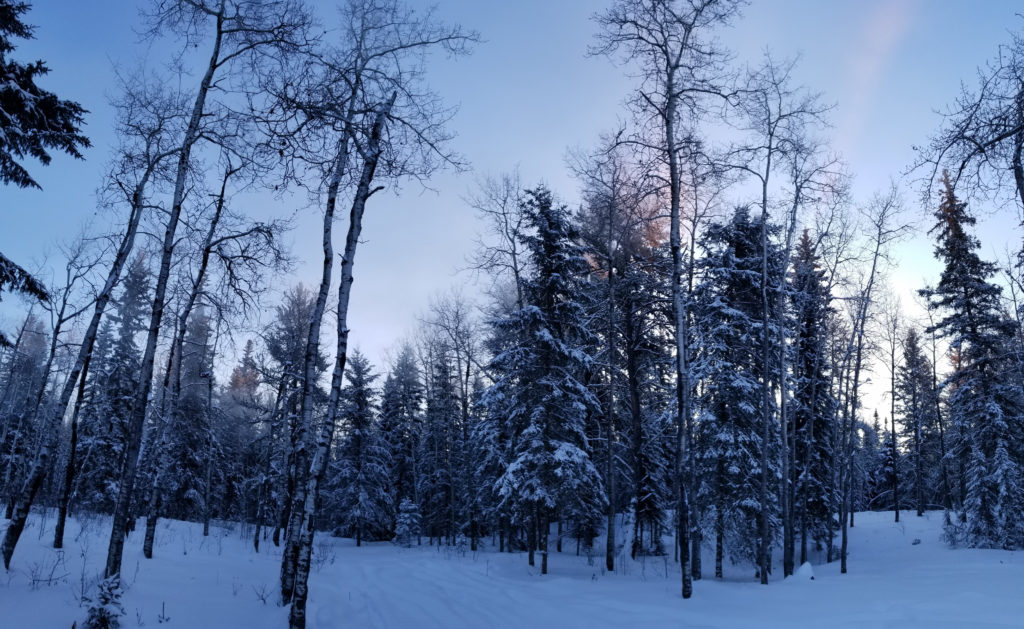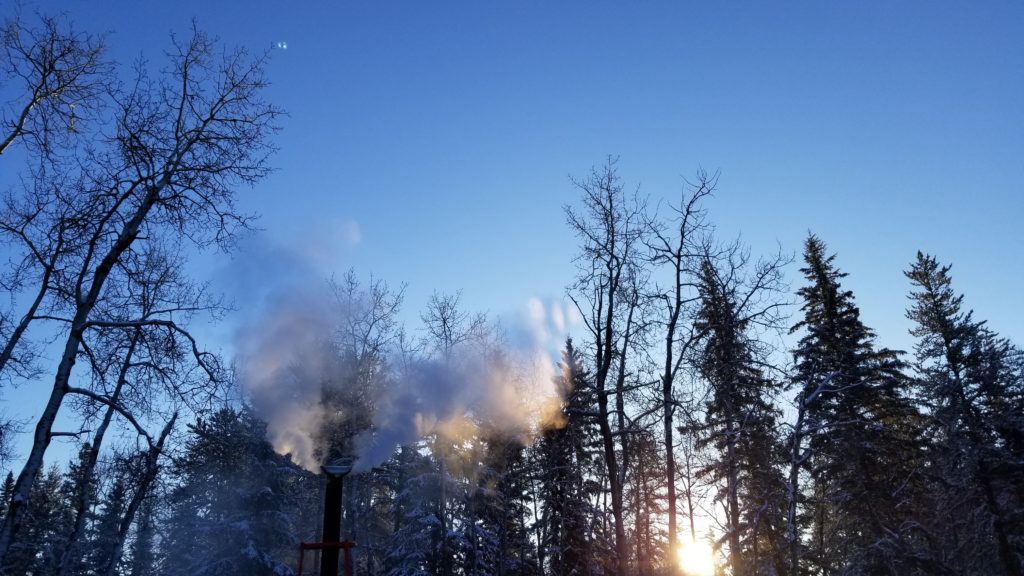This is what I would have preached:
In our first lesson this morning, Isaiah reports his encounter with God: I saw the Lord … full of his glory.
At the Synod Study Conference the main presenter encouraged us to think about how our images of God inform our faith, our thinking, our hearts, and our actions as God’s people.
Isaiah provides an awesomely frightful, wonderful image of God, on a throne, robes filling every room of the temple. Heavenly winged creatures protect themselves from seeing God so that they can survive. No one can see God and survive; except by God’s special grace, like Moses on the mountain who returns pure white and here Isaiah.
The real question for most of us today is not if we will survive seeing God, it is rather Do we see God at all? Do we have an understanding of God that is large enough? Or do we believe in a small god who is controlled and limited by our own whims?
It is no coincident that a TV series writers named their all powerful character Q, or source (source of all sorts of trouble.)
Imagine that you are sitting here in worship one minute, and the next in the company of this all powerful being you are circling the planet Saturn able to see the colours and particles of its rings splash across your face. Before your heart completely shuts down at the awesomeness of it all, you are hurling through space faster than light, able to see everything in detail as you go, until you are beyond the known universe in the delta quadrant. Then in an instant you are back, watching earth form and evolve, seeing every detail all at once as millions of years pass in minutes, until you see yourself born. Time slows and you experience everything about your life again, but with a much fuller context, until your brain protests the overload.
The all-powerful, capricious, selfish, and terribly destructive being Q, entices you to ‘fix’ your life by wiping out all your mistakes. All you have to do is give him everything of your life so that he can experience human existence through your eyes, heart, and mind.
Suddenly he is gone. His own kind have revoked his powers. You sit here with us singing a simple song of our faith.
This terribly destructive and capriciously self-absorbed being, from Star Trek, Q, is a collective of a single being who have unlimited power and knowledge.
But even this being is too small to be our God, or anyone’s, though Q would like to be. Q does not know empathy and love for others.
Were Q your god, you would have ample justification for all sorts of selfish, small minded, sociopathic thoughts and actions. Between people there would be a constant battle to see who could get the best of the other, in order to live a fuller life. … Which horrors of horrors sounds pretty typical of human life, and thus the image of Q chosen by the writers, a mimic of an all too common image of a far too small god.
By contrast fortunately our God is gracious and all-loving. God’s steadfast love endures forever!
Encounter with our God
How have you encountered God? What images of God do you use to interpret and make sense of the world? To make sense of what was handed down to you from previous generations? To make sense of what people around you experience? To make sense of what you have learned about this wonderfully complex world which is just a speck in God’s creation?
Isaiah finds himself in God’s presence. He is terrified at the awesome presence of God that flows everywhere throughout the temple, with a host of marvellous creatures. In an instant that holds all time, Isaiah sees he has unclean lips, lives with a people of unclean lips. He is awfully unworthy to be in God’s presence.
Peter, fishing all night without any luck, encounters Jesus, who borrows his boat to teach the crowds gathered, who hunger for Jesus’ words and healing truth. When Jesus tells Peter to let down his nets again, Peter, not ready to throw wasted effort after a futile night, decides however that, just for Jesus, he will toss his nets in the deep once again.
The abundant fish start to break his nets, overfills his boat and the second boat of his partners who come to help Peter with the catch. Peter realizes three things: Jesus is God, Peter is sinful, and he ought not stick around very long: encounters with God usually do not end well for sinners.
Isaiah and Peter both try to end their encounter with God. God has other plans for them, and for us.
God sends a seraph to purify Isaiah with a burning, live coal. Jesus quells Peter’s fear, and then calls Peter to follow him, to catch people, instead, for the Kingdom of God.
No matter how we imagine God, we, too, ought to be terribly afraid of God’s awesome power.
The biblical stories again and again call us to not be afraid, though we are. They remind us that above all God, all powerful and all righteous, all knowing, is also gracious and all-loving. God chooses to save us.
[Insert your own story of grace, new life and gratitude shared.]
Breathing clean fresh air I walked with grace, a spring in my step, a new found hope in my heart. Just minutes before: The van started to fish tale on unexpected black ice. I had held it in my lane delicately adding power and counter steering the slide as cars and a semi-truck passed me on the other side of the road. At the top of the hill on the corner it had one last wag and it was done dancing. Until on the bridge above the railroad tracks far below, the van slowly rotated a full 180° into the other lane, where no traffic was at the time, by inches missed the guard rail beyond the railroad track, hit the snow bank at the road’s edge and flipped once clean in the air, then rolled twice down the long embankment to stop upright against the trees at the bottom. Glass shards were everywhere, the van was totalled, but we, with only a few bruises and cuts, undid our seat belts and walked up the snow-covered embankment and down the hill to the inn by the lake. We breathed new life. We shared new life at worship that Sunday, at the funeral the next week, and with everyone we encountered over the next few months. Life was again a free gift from God. The van so easily could have danced into the oncoming traffic to take all our breath away; or flipped over the guard rail falling 75 feet (that might as well have been miles) to a dead stop. Yet we breathed … we breathed only by the Grace of God. So we shared with everyone who crossed our paths gratitude and love of life in every grace-filled way possible.
Responses to our God’s Grace
Purified by the searing heat of a live coal, made clean by God’s work, not Isaiah’s, when God asks who God should send, Isaiah is able to respond wholeheartedly, “Here I am, Send Me.” Because of what God has done for him, free, graceful, healing and life-giving, Isaiah knows who he is. Isaiah volunteers to be God’s voice for others, in order to give the same grace to others that God has given him.
Peter knows both Jesus to be God and himself to be a sinner, unworthy of being in God’s presence. After Jesus frees Peter from his overwhelming fear, Peter leaves everything behind: nets, boat, and two boatfuls of fish. Peter answers Jesus’ call to go and fish for people; to bring others to see Jesus as God’s own son, their saviour, and hope for tomorrow.
God makes both Isaiah and Peter into saints (God’s perfect people of light and grace). Both become perfect and yet remain sinners. This is what Martin Luther spoke about, and we now speak about, when we say we are all simultaneously saints and sinners.
The question each day is will we notice God’s presence every day?
Will we recognize God as God and be awe-fully afraid of God? Will we, by the grace of God, allow God to calm our fears and purify our lips, hearts, minds, and strength? Will we volunteer to bring grace to other people, all kinds of people, especially our enemies?!
Concluding Blessing
By the grace of God may we see God each day, present in our lives. May we recognize God and be fearful of God’s awesome power, but by God’s Grace and love allow ourselves to be transformed into people of the light. May we step into each moment filled with God’s grace for us and hand on to others that grace that is given to us.
May grace abound through us God-made saints, yet always sinners, for all people. Let there be light! So that we, and many people through us, may say: I saw the Lord … full of his glory.
Amen





